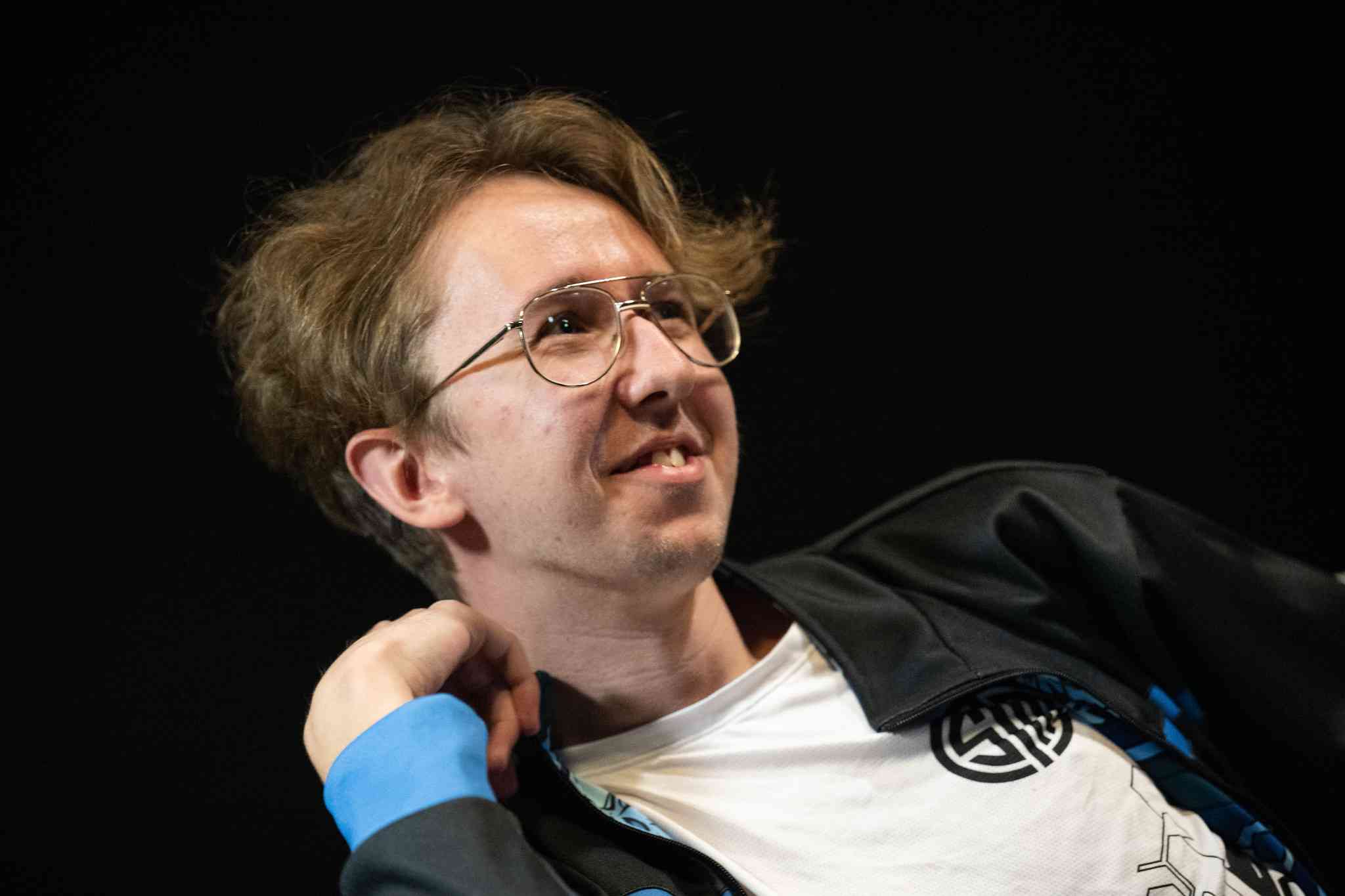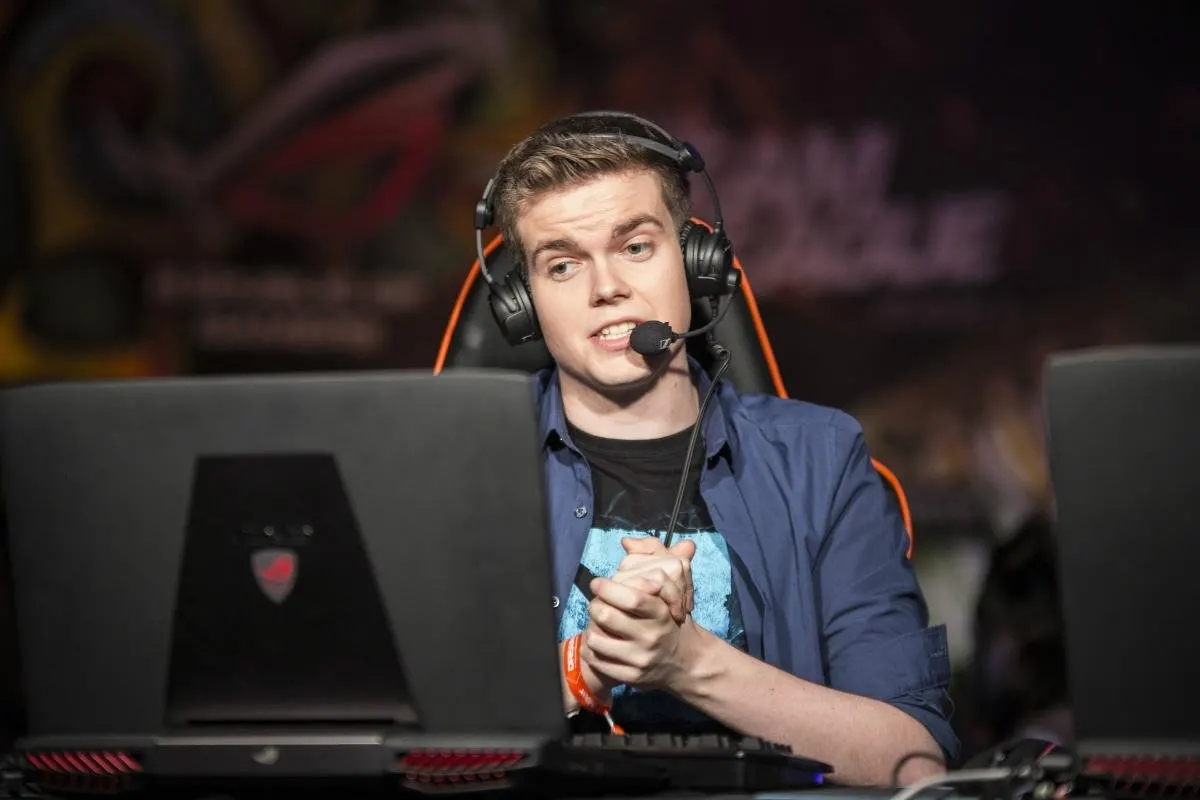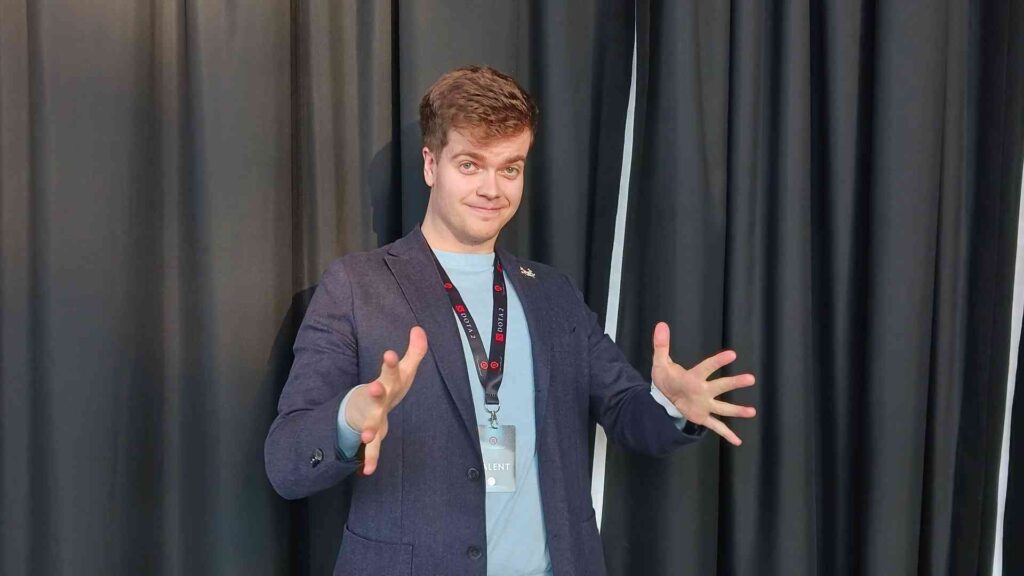By this point, everyone has heard of Dota 2 caster Owen ‘ODPixel’ Davies. For starters, he’s casted four consecutive TI grand finals from 2018 to 2022, been active in the since the early 2010s and became a beloved figure for his work specifically because of his diligence in honing his craft.
Certainly, he’s come a long way from those early days of casting British Dota tournaments from his small streams, and now that he’s crossed the 30-year-old threshold, one has to wonder whether his perspective towards his road to the top has changed in any particular form. It is with that thought in mind that BLIX approached ODPixel for an interview during TI 12 on how he looks back on his career as an unmistakable figure, in addition to other topics.
For the first part of the interview, he discusses his return to Seattle for TI 12, the state of British Dota and what it’s like for him to reach 30 years old. Check out part two here.
Returning to Seattle for TI 12
Pedro Romero, BLIX: I really appreciate you taking the time for this interview. Just start off with a simple, generic question that every interviewer asks: If you’re put into a fight with every other broadcast talent within this arena, would you win that fight and why?
Owen “ODPixel” Davies: I would definitely not win that fight. We’ve got quite a few talents that hit the gym a lot harder than I do. Probably Lyrical [Gabriel Cruz] is someone who I think would be the best off. He’s a big lad, but he’s a strong large, so I don’t think anyone wants to mess with him. He’ll sort you out.
BLIX: Right on. This is a pretty generic answer for a pretty generic question. But looking at Seattle, with TI back here after six years, how are you taking it in? Is it the same as before, or is it different?
ODPixel: Being in Seattle is always gonna be extra special in TI because it’s obviously the place where the game is worked on and done. Being close to the Valve headquarters and the fact that you’ll tend to see a lot more Valve people around the arena coming in to watch the event adds that extra bit of magic, and given the fact that we just had so many great TI’s here in the past, the fans love it. We don’t have a lot of events out here in North America, so it’s always completely packed out with all the North American fans making sure that they get to the TI in Seattle. It’s just a place that will always be very special for Dota 2 and will continue to be. We’re here this year, and I would like to return for future TI’s.
BLIX: The North American fans have been pretty energetic and loud, especially for the first series when nouns came out for their series against Gaimin Gladiators. How does the North American crowd compare to other regional crowds in other major events and the like?
ODPixel: The North American crowd has been fantastic. We’ve seen the first series today in which we did have a North American associated team (nouns) that really riled the crowd up, but I think regardless of the fact that it was the first game of the day, the crowd was pretty much packed already. You don’t always get that at events where, especially on a weekday and it being the first game of the day, everyone’s making sure that they’re in the arena ready for the action and they’re making a lot of noise.
And they’re not just doing it for nouns. They’re doing it for the other teams, too so it’s just a really great atmosphere and you can really tell that the crowd is just super happy to be here and get to watch the games in such an awesome environment rather than just necessarily only rooting for their favorite team. They just want to see good games, they want to see close games, and you can really tell that with how excited the crowd is.
Focusing on British Dota
BLIX: This TI has been, like many other past editions, a sort of homecoming when it comes to storylines for certain individuals, teams, and even some fans. One thing I want to touch upon for this occasion is the significance to Britain. The country saw its first player competing within TI with TSM’s Ari [Matthew Walker]. What does that mean for British Dota to finally see one of its own players reach TI?
ODPixel: I think it’s super cool for the region. For British Dota, when I started my career as a caster, the first events that I did were UK Dota 2 LANs, which were always great fun and you will see some pretty good players, but most of the time, the best players in those tournaments where were players that flew over from other European countries to join a UK stack and play. Normally, the strongest players were not from the UK, so to see a player actually from the UK in Ari come out and play at this international level is super awesome.
It just goes to show that we’re not all terrible at Dota 2 in the UK. There are some good players out there. Of course, Ari didn’t make it all the way to the main stage this year at TI, but he’s a young lad. I’m sure he’s gonna have a great future ahead of him and this could be the start of seeing even more UK players make it to TI in the future.
 Matthew “Ari” Walker: Britain’s first Dota player to ever compete in a TI (Image Credits: Valve)
Matthew “Ari” Walker: Britain’s first Dota player to ever compete in a TI (Image Credits: Valve)BLIX: There’s an interesting dynamic when it comes to Britain, not just in Dota but also in esports. It has a litany of very talented individuals in broadcast, such as yourself, but the same can’t be said for players and teams. Of course, there are some exceptions like Into The Breach, but why do you think such a difference exists between talent and players in British Dota and British esports?
ODPixel: I don’t know. Maybe from the player side of things, in the UK, especially when it comes to PC esports, at least as far as I’m aware, when I was going through school and things, it wasn’t really super popular. People play consoles, people play FIFA, and people play Call of Duty. That’s what we kind of do in the UK, as far as I’m aware’and we played a bit of RuneScape and a bit of online MMOs. I did not have many friends who played any sort of MOBA or anything like that. The friends that I had were the friends that I kind of forced to play this Dota 2 game, so in terms of just the numbers of people actively playing the game and trying to be good at it, it’s just pretty low in the UK. There’s not that big of a scene. I think it’s getting bigger and seeing UK players make it to the forefront of the game is definitely going to inspire other kinds of UK players that are around that eight to 10k region of MMR and might push them to a little bit harder because they feel that they could also do it themselves, but yeah, it’s not super popular.
ODP on turning 30
BLIX: And another thing that I want to touch upon is your age. You’re no longer in your 20s, and this TI marks the first in your 30s. How much of a change in perspective does that play into your mind now that you’re 30 years old?
ODPixel: Honestly, I didn’t expect to still be here at this age doing what I’m doing. I started doing this when I finished university, which was probably about eight or nine years ago and it was very much like, “Well, this is awesome. I get to talk about Dota 2 and make a living from it. I’m going to just do this as long as I can.” So honestly, the fact that I am here this many years after and I’m still doing what I’m doing, I can’t complain.
I’m super happy that I’ve managed to do as much as I have done, and every sort of day event that goes beyond this, I’m just super grateful for because it’s just an amazing position to be in. And as always, I’m just truly grateful to all the fans and to anyone who tunes in and anyone who watches Dota 2 and especially anybody who specifically enjoys listening to me talk about it because they allow me to do what I love.
I didn’t think I’d still be here doing this at 30. I thought maybe fewer people were watching the game, but that’s not been the case. Dota 2, if anything, is as popular as ever, which is just fantastic for the future. On top of that, I’m pretty confident that Valve is going to continue to do some great things gameplay-wise for the game. It’s gonna be around for a long time, and I hope I’m around for a long time as well doing what I’ve been doing.
 ODPixel in 2015. Not much has changed looks-wise or talent-wise since then, no? (Image Credits: DreamHack)
ODPixel in 2015. Not much has changed looks-wise or talent-wise since then, no? (Image Credits: DreamHack)BLIX: Why do you call yourself an old man?
ODPixel: Compared to some of these players, they turn up in their young 20s and it definitely makes you feel your age a little bit, but I don’t mind. I don’t worry about getting old anyway. It’s not something that scares me. I can still be here in 20 years, and I’ll still feel as young as I was. When it comes to playing games, it definitely helps with coming up with a reason to be sitting around playing video games all day when I’m not at events because I’m like, “Hey, I’m young! I can keep playing video games,” but it’s also nice that obviously a lot of my other casters and analysts are all growing old with me.
It’s definitely a scene where the fans have grown older, and the players are growing older as well. Sure, we have younger players, but we also have some players in the booth that are still around at a similar age to myself. So it’s going to be interesting to see if, indeed, in 10 to 20 years’ time, we’re going to have commentators that are in their 40s and 50s and maybe some players even pushing even to their late 30s and they’re still going out on the TI stage.
BLIX: You mentioned that you were a little bit scared about that age dynamic. What made you so afraid back then, and how did you grow out?
ODPixel: For the most part, I just didn’t really think about it, you know? I looked at the positives as in, “Well, I’m gonna get to commentate Dota 2 next month,” and then I wouldn’t really think beyond that, you know? And I still kind of don’t, really. I’m a very bad person at planning things. I don’t really plan anything. If someone asks me to do an event, I’m sometimes hesitant to accept it immediately because I don’t know what I’m going to be doing in a couple of months, but in reality, I’m not doing anything at all.
I should accept the events every time, but I just kind of go day-by-day. I’m not sitting here thinking what would happen in a year, or maybe I won’t have a job. I think in the short-term, which is maybe not the healthiest thing to do, but it definitely keeps me positive and helps me make sure that I’m always looking forward to the next thing rather than worrying about what’s going to happen after the next nothing.



